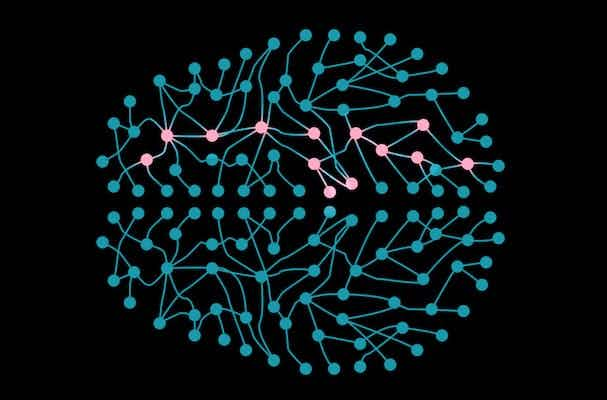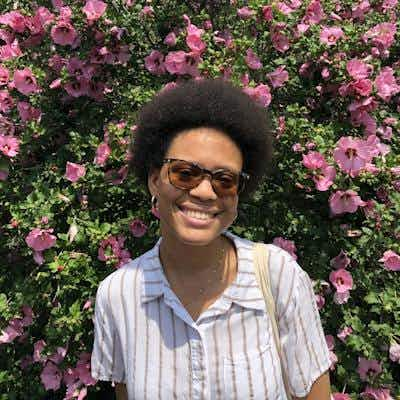Online course designed for high school students
Neuroscience and Medicine: Inside the Brain and Nervous System
The human brain weighs about 8 pounds, is home to roughly 86 billion neurons, and controls everything from our thoughts and feelings to the way we move. In this course, you will delve into the field of neuroscience. Explore the anatomical structures that comprise the nervous system. Learn how the brain sends messages to the spinal cord. If you are interested in neuroscience, medicine, psychology or other STEM-related subjects, this course is for you.
Apply Now
Uncover the science behind the brain
Identify the major structures of the nervous system
Study the basics of neuroscience, how the brain works, and the structures of a neuron. Review common neurological disorders such as epilepsy, stroke and traumatic brain injury.
Learn how neurotransmitters work
Discover how the cells in the brain communicate, how electrical and chemical signals talk to each other, and how medicine can change behavior.
Explore the relationship between mind and muscle
Understand how complex neural signaling controls movement and behavior. Learn how neural engineering techniques are leading to new therapies for neurodegenerative diseases.
Delve into the neuroscience of emotion
Consider the processes that drive learning and memory. Explore changes to the brain’s anatomy that result from neuropsychiatric diseases, such as Alzheimer’s, and emerging treatments.
Uncover the underlying causes of neurological disorders
Survey common neurological disorders such as multiple sclerosis, addiction and autism. Practice diagnosing a hypothetical patient.
Explore college majors and future careers related to neuroscience
This course offers a good background for those considering a future in medicine, psychology, nursing, biostatistics, medical research, lab technology or other STEM-related careers.
How You Will Benefit

- Discover the relationship between the brain and the thinking mind
- Learn to identify and describe anatomical structures and cells of the nervous system
- Understand how the nervous system regulates muscles and behavior
- Become fluent in the causes of common neurological disorders
- Learn how to apply scientific principles in order to understand how neuroscience influences quality of life
- Enjoy flexible online lessons delivered through dynamic videos
- Earn a Certificate of Completion from Case Western Reserve University
Apply Now for the Next Available Course
All course options, whether two or four weeks, have the identical educational content, learning materials, and number of assignments. We provide the option of a condensed version of the course to accommodate students’ individual schedules.
Hear From Case Western Reserve University
Hear From Our Students
This course is incredibly beneficial for students who do not have neuroscience classes offered at their schools. This course gave me a look into what it would be like to attend college with a major or minor in neuroscience. It is hard to decide whether or not you want to major or minor in a subject without even knowing what it is like, so this course allowed me to see how I handled the material. - Emma, neuroscience student from PA.
I have never taken a neuroscience class before this; but, I was interested in learning more about the nervous system and brain. This class provided me with a fun learning experience; I learned at my own pace, I found the assignments were a perfect balance of challenge and enjoyment, and I researched a neurological disorder that I took interest in. This course is great for any student who is interested in science and is dedicated to expanding their knowledge! - Koen, neuroscience student from the US.
The course provided a lot of interactive discussion boards, and videos provided in-depth knowledge of the brain structures, how they work, and how neurological disorders are related to them. It was also definitely a beneficial step in deciding if medicine was the right path for me! It was a great course and I would recommend it to anyone who is interested in pursuing a career in medicine and the brain. - Anushka, neuroscience student from OH.
3 Learning Advantages Designed for You
Mentoring
You’ll receive guidance from a mentor who can answer questions and provide support throughout the course. You can expect:
- Encouragement and direction on all assignments
- Inspiration and motivation to help you succeed
- Brainstorming and ideation help as you prepare for your final project
Flexible Learning
- 100% online, works with your schedule
- 20 to 25 hours of total instruction and course work, including engaging multimedia, simulations, and curated assignments for which you will receive guidance and support
- A flexible format: You’ll learn through engaging video and can tune in anytime that works for you.
- Engage with students from around the world
Final Project
The course culminates with a final project that allows you to:
- Create a medical presentation about a hypothetical patient and provide clinical information that describes a neurological disorder
- Describe diagnostic tests and their outcomes
- Get feedback on your work from your mentors
Course designed by Case Western Reserve University

Ashley Nemes-Baran, PhD
Assistant professor of neurosciences, Case Western Reserve University School of Medicine
Nemes-Baran is a widely published author of scientific papers on topics in neuroscience such as traumatic epilepsy. She studies the relationship between cellular dysfunction in development and neurological disorders throughout the lifespan including epilepsy, brain injury and repair, Alzheimer's Disease, and demyelinating disorders. Nemes-Baran teaches courses on the fundamentals of neuroscience at CWRU.

Barbara Kuemerle, PhD
Senior instructor, Department of Biology, College of Arts and Sciences
Kuemerle is recognized for her research on topics such as neurological deficits in the amygdala as well as studies on autism spectrum disorder. Her stated mission is “to challenge students to be active learners and critical thinkers.” Kuemerle teaches human learning and the brain, biological processes, and development & physiology at CWRU.
Course Mentors

Carli
Case Western Reserve University undergraduate with a major in neuroscience. Currently contributing to clinical neuroscience research CWRU.

Liam
Case Western Reserve University undergraduate with a major in neuroscience. Currently performing research at the Cleveland Clinic in the lab of Dr. Louveau, focusing on meningeal lymphatics.

Nisha
Case Western Reserve University undergraduate with a major in neuroscience. Previously performed research at the CWRU School of Medicine and the U.S. FDA National Center for Toxicological Research in the Division of Neurotoxicology. Currently involved in research at the Cleveland Clinic Lerner Research Institute and University Hospitals. Also the founder and president of the Case Neuroscience Society (CNS).

Marissa
College graduate with a B.S in Psychology and a minor in Neuroscience.
How to Apply
It’s easy. No transcripts or letters of recommendation are required. Just provide some basic information and tell us why you wish to take this program.
Note: Please submit all application materials in English.
Begin the guided process. It should take only a few minutes of your time to answer the questions.
Apply Now
Scholarships
We offer need-based scholarships for participating students who exhibit high potential and an inability to pay the full tuition.
- If you haven’t applied to the program, apply here. After submitting your application, click “Apply for a need-based scholarship” on the confirmation page to request a scholarship.
- If you’ve already applied to the program, sign in to your profile to check your scholarship status. If we don’t have a scholarship request on file, click “Apply for a need-based scholarship” to request a scholarship.
The University reserves the right to modify the course as may become necessary.